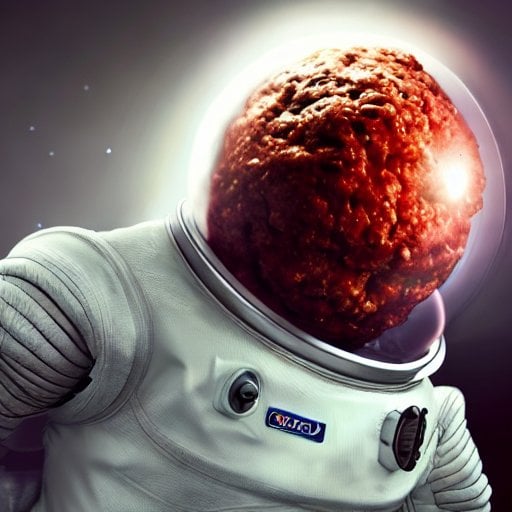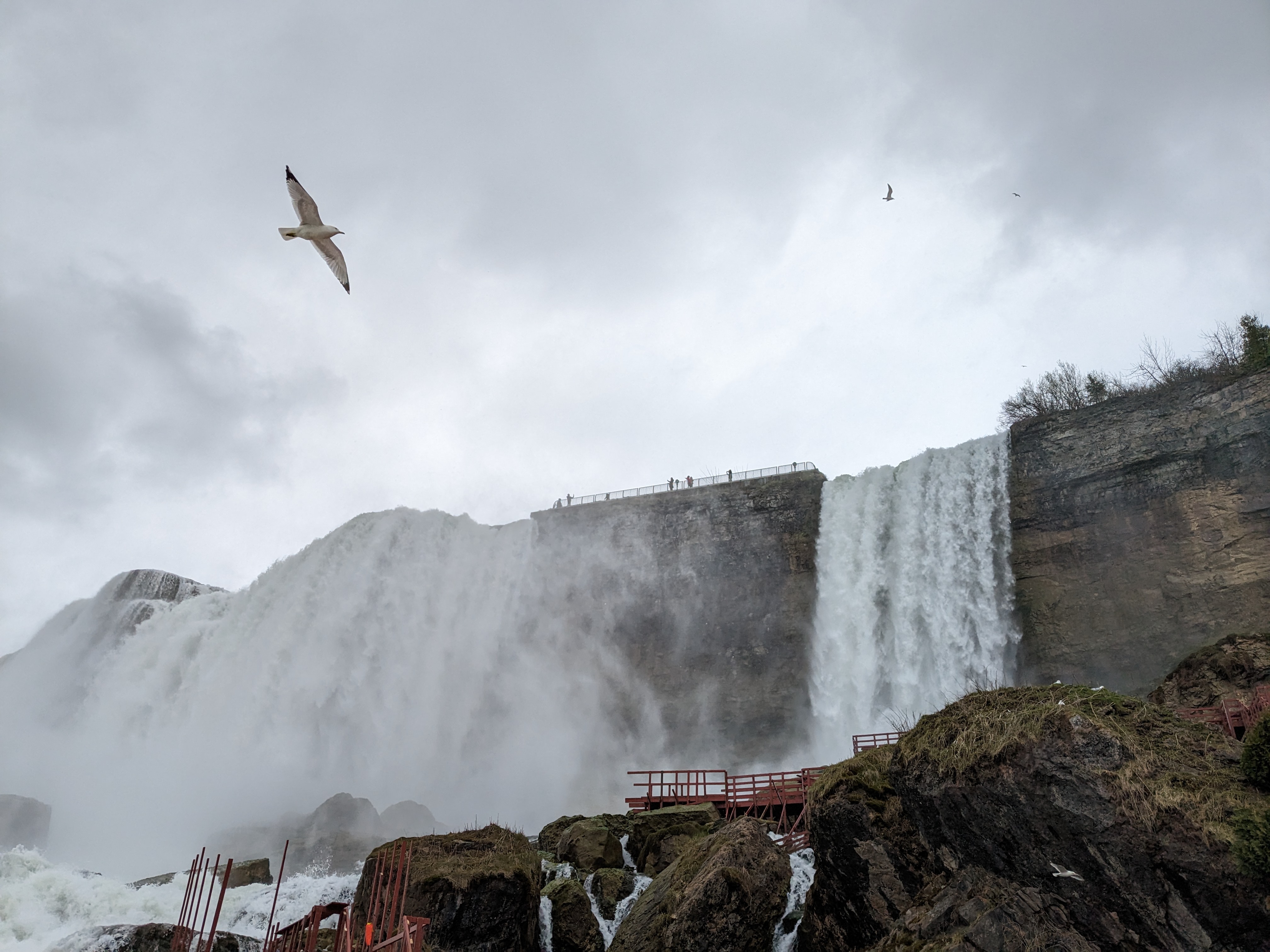There are entire levels of the ocean where ecosystem is fed on the slow sinking of dying animals.
Cycle of life is pretty badass.
Greenland sharks are pretty amazing
They can grow up to 24 feet putting them at the same giant scale as great whites and basking sharks, but most are usually closer to 5 meters long
They can live for hundreds of years due to extremely slow metabolism and ambush feeding, some individuals found around 400 years old are as old as the Jamestown colony, Don Quixote, and the discovery of logarithms.
They are opportunistic feeders and have been found with polar bear and reindeer in their digestive systems, and can pull/vacuum in water to catch their primary prey of fish, eels, and other sharks.
24 feet ~ 7.3m
5m ~ 16’5”
…i was going to say 16 ⅔ feet based on 1 ½ meters being about 5 feet, pretty close…
deleted by creator
feet … meters
Oh, please.
Be me
young shark, ready to make my mark on the world
Find a book falling from the sky called Don Quixote
eh_mid.jpg
Ignore humans for a few hundred years, eat some fish instead
Find out it’s become a core component of their identity and everyone knows about it
Even had a ballet about it
wtf
Don Quixote is actually an awesome book, you should definitely read or listen to it. Give it a bit to get rolling, and you will absolutely be doubled over with laughter
So 5 meter long sharks with 24 feet? That sounds terrifying. How far up the beach can they run?
Back to the horrors of the deep…
They also commonly have eye parasites that severely impairs their vision or blinds them called Ommatokoita elongata.
So they get to live long with multiple generations of parasites stuck in their eyes they can’t get out.
Are they the ones where you have to ferment the flesh or it is toxic? Or wasn’t that a shark?
The ocean has killed more billionaires than the Moon has.
…so far
Scoreboard, scoreboard.
When a whale dies and its corpse falls to the bottom of the ocean, entire ecosystems rapidly develop around eating every part of it due to how scarce resources are in the deep ocean. This phenomenon is called a “whale fall” and it’s a major source of energy for deep ocean ecosystems.
Whale whale whale, what do we have here? - deep ocean crabs
Life is worth living today thanks to this comment
Sometimes I wonder if a shipping container full of billionaires would have a similar effect.
That seems like a waste of a perfectly good shipping container.
Why don’t we just use environmentally friendly hemp ropes and locally sourced boulders?
Locally sourcing boulders over the Marianas Trench is going to be such a pain. I’m pretty sure the environmental benefits will outweigh importing some nice basalt from Hawaii before we leave out.
We have to find out. We need to try it immediately to see what happens. That’s just basic science
Or a submarine.
There are lakes in the ocean called brine lakes/pools. Brine is essentially concentrated saltwater; its high salinity means it’s denser than water. On rare occasions, brine doesn’t mix enough with the existing saltwater around it, sinking to the bottom of the ocean and forming these lakes. The lake itself is usually devoid of life; brine itself is so salty that animals go into toxic shock if exposed for too long. However, the edges usually are full of life, where usually things like mussels and other extremophile organisms thrive.
Side note, subnautica’s lost river is based off of this. No big leviathans in real life though, at least none observed yet…
Video for fun: https://youtu.be/ZwuVpNYrKPY
Wow, I had no idea these were a thing… and it’s so funky how the surface of the brine pool interacts with the surrounding seawater!
Amazing
Similarly, SpongeBobs Goo Lagoon is a brine pool.
It was never stated but I always assumed the “goo” referred to industrial waste. But SpongeBob creator Steve Hillenburg was an actual marine biologist and would have been well aware of brine pools, so that’s probably right.
Brine can be from industrial waste
Technically, brine just means a high concentration of salt in a fluid. It doesn’t necessarily have to be sodium chloride like we know, it can be other salts, like calcium chloride. Though the most common case for industrial brine is just desalination plants, other industries can still create brine, like mining/oil drilling. It also depends on how it’s released. Large amounts dumped at once is the reason for manmade brine pools.
It’s the explanation for the beach Spongebob visits too
The Blue Whale is so large, that if you laid one out on a standard NBA basketball court, the game would be postponed.
Lobsters have urine nozzles under their eyes, and pee in each other’s faces to communicate.
subscribe
Lobsters have olfactory sensory neurons, located in the aesthetasc sensilla on their antennules, which allow them to detect the pheromones in the urine of other lobsters.
A dominant male lobster will pee to signal his dominance and deter other males from his territory. Females may also pee to signal their readiness for mating, and the urine of a dominant male can attract females.
Lobsters also communicate through touch and by using their claws, but no one really gives a fuck after reading about the pee thing.
Im interested in the claw communication! How does that work?
Also, the pee stuff is hilarious
Mostly as a show of strength and territorial control. Nothing unexpected. It’s not as nuanced as their pheromone communication.
Ah, so just kinda slappin claws.
Tl;dr lobsters have a major piss fetish
Lobster: I can’t understand what you said, please piss it slower for me.
It won’t help, the other lobster has diabetes, so it pisses with an accent.
Thanks for the laugh.
and lemmy
Speak for yourself
I’ve seen them on the bus I think.
Is there any other way to communicate? Peeing in someone’s face is a very effective way to send a message.
Sharks are older than trees and the north star.
And Saturn’s rings!
And some living sharks are more than 200 years old, probably.
The perfect killing machine
Norwegian fjords are freaking deep. When you’re on the shore of Sognefjord, you’re standing in front of a 1300m deep canyon filled with ocean water.
New anxiety unlocked.
What I like to think about is that fjords were carved out by glaciers and the sea level has certainly been lower that it was now in the past… but 1300m deep what???
…so how did Glaciers cut rock BELOW sea level? Like wayyyyyy below sea level?
It is the weight of the entire glacier bearing down and carving wayyyyyy below a depth that a chunk of ice would make sense being at, the entire glacier basically serves as a trench digging machine and as you pointed out these fjords are REALLY deep.
They were carved by Slartibartfast, not glaciers.
where is your proof? If Slartibartfast did it you would be able to find his signature somewhere in the work.
The mouse’s design specifically excluded any artists’ signatures.
Typical mice nonsense, did they even thank us for all the cheese?
No but the dolphins said “thanks for all the fish” before they leave.
Whales suffocate to death; they don’t drown.
Human breathing is controlled by the autonomic nervous system. We have to hold our breath on purpose to stop ourselves from automatically breathing. This makes us passive breathers. Whales, however, are active breathers. They must choose to inhale which is why they can sleep without sucking in air. When they get too old, sick, or weak to surface, they suffocate.
Bonus fact: whales can’t breathe through their mouths; it goes straight to the stomach. The blowhole is the only respiratory tract.
Bonus bonus: a blue whale’s throat is so small it could choke to death on a grapefruit.
Bonus bonus: a blue whale’s throat is so small it could choke to death on a grapefruit.
I’m sure their throat can be blocked that way; but if they can’t breathe through their mouth anyway, is it actually choking? Or just terminally blocked?
Fair point. I didn’t even consider the ramifications of wording it like that instead of just saying it has a small throat. I tend to use analogies a lot
Nah, it makes sense, and ice heard this phrasing before - just always wondered if they meant the poor whale couldn’t breathe, or basically just had indigestion!
4" / 10cm throat
While this is funny and all, this isn’t really true for a couple of reasons:
- We know a hell of a lot about the oceans, we’ve studied them for hundreds years. There has been extensive mapping of the seafloor. All of the areas close to land have been thoroughly studied. And where we’ve spotted interesting stuff, we’ve investigated for sure.
- We haven’t thoroughly explored the moon. Sure we’ve had nice pictures for a long time. But we’ve only recently seen the rear side of the moon, as we more or less always see the same side from Earth. Not till recent orbiters we’ve had a high resolution map of the moon, comparable to maps we have of the oceans.
- Only a dozen or so people have ever been to the moon and the amount of research they did was very low. They also haven’t brought back many samples. And the amount we can do from orbit and with rovers is very limited. At this point I would say we know more about Mars than we do about the moon, depending on how to count. The moon isn’t that interesting, so we haven’t done much with it. It’s made of the same stuff as the Earth and without an atmosphere and biosphere, it’s kinda dull.
- This is basically impossible to measure. What is knowledge? How is it quantified? We could say it’s relative. But since there isn’t a way to know how much total knowledge there is available to learn, I’d say that’s not possible. What does it mean to “explore”? Do people need to go there? Because a hell of a lot of people have been to the seafloor than to the moon. Hell going to the seafloor is a basic tourist activity these days. I’ve been to the Maldives and did some crazy dives looking at life on the bottom of the sea.
- People might argue the Moon is basically all the same, so once you’ve seen one spot you’ve seen them all. I’d argue that’s not true, we’ve only recently learned the moon’s poles are very interesting and we know very little about that. And I’d counter that argument with the fact the same goes for the deep oceans. A whole lot of it is just barren wasteland, an under water desert. We haven’t explored because there is nothing to see. We select interesting locations and study them thoroughly, instead of studying a lot of it a little bit and wasting huge amounts of time.
- Another argument often repeated is new species are discovered every day in the ocean. Whilst this is true, we are also destroying a lot of species, so the total number might actually go down instead of up. And a lot of species are variants of already known species. Only expert biologists can differentiate between the species and know what to look for. And I’d argue they don’t change the big picture or understanding at all. Still interesting, but not an indication there is so much more to find out there.
- But what about something huge living down there? Like a Kraken or dinosaurs? Well no, we don’t have to have studied every square inch to know about big life. Big life is messy, requires a lot of resources and is part of a food chain. You don’t need to see the dinosaur if you can see their giant mountain of crap amidst broken trees. There might be some kind of large squid or something down there, but they will probably be extremely similar to other large squid we already know about. So a new species, but not changing the overall picture. If there were any big monsters down there, we would know about them by now.
So this is one of those things that might feel true, but in reality it really isn’t.
It might be more accurate to say the average person knows more about what we don’t know about the ocean than what we don’t know about the moon.
We have a decent idea about what can and may exist in and about Earth’s oceans, but less about the moon; and most people assume it’s just a dusty rock too.
Well, now that we know what’s out there, I think we should focus our efforts on putting a big sea monster into the ocean.
Too easy. We need to put a sea monster on the moon.
The moon isn’t that interesting, so we haven’t done much with it.
It’s a ball full of sharp and toxic shards that get everywhere.
On the other hand, the ocean has immortal jellyfish and snail with iron armor.
The blue planet 1 BBC documentary states that we know about the moons surface than ocean floor. The BBC’s Blue Planet 2 changed that to: we know more about the surface of mars than we know about the ocean floor.
So make of that what you want.
Everything outside of my immediate experience is densely packed squid atlanteans. (I feel like some people seem to genuinely think like this, which is distressing)
Andrew wouldn’t like Solaris me thinks
Is that a Stanisław Lem reference in the wild? Will wonders never cease…
One of many things to love about lemmy.
It’s almost entirely located on land.
Did you know fish fuck in the ocean? Remember that, when you go for a swim.
Assert dominance: Fuck the fish.

what if we finally get to the moon and there’s another ocean there waiting for us
Liquid cheese? Oceans of Cheese Whiz?
I would give everything to experience this.
In this scenario, is the pool made of blood? Because then I have a game for you.
you are in luck we have the answer: https://youtu.be/aIIBBj6KR-Y
Maybe it’ll be fun enough that we’ll simply forget to explore it’s depths YAY














